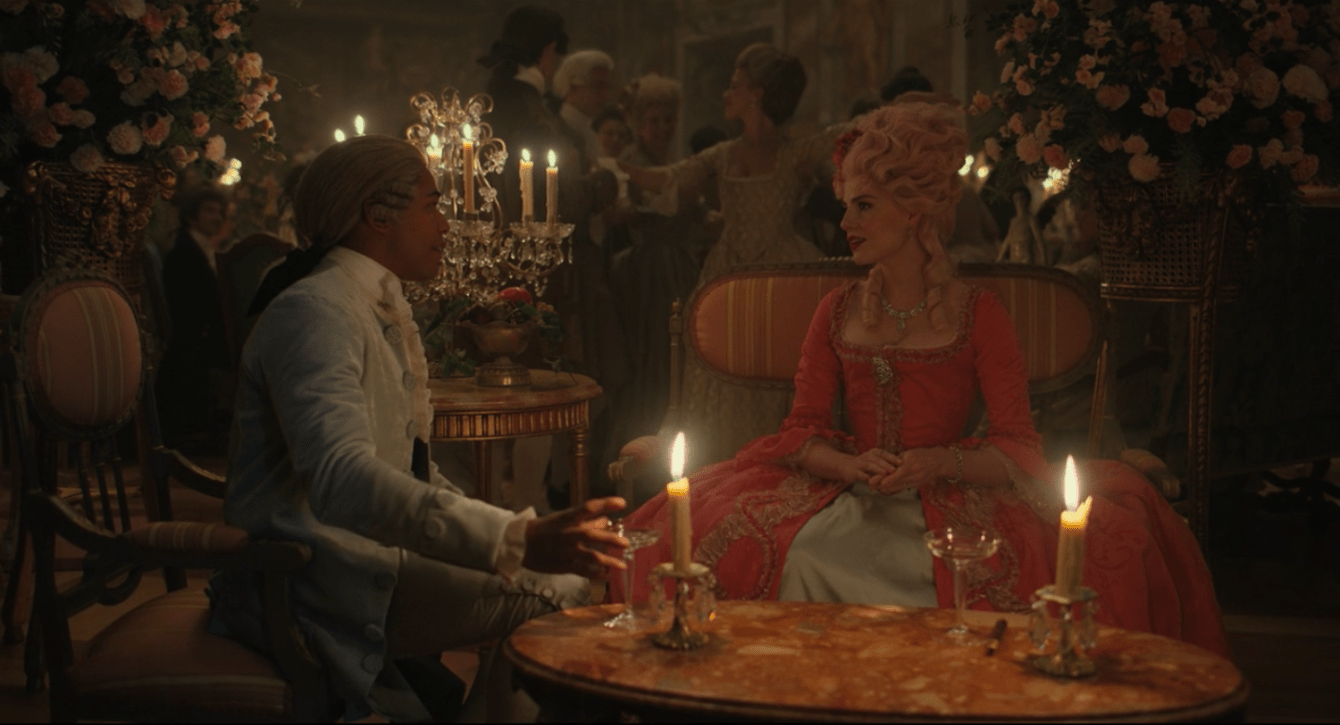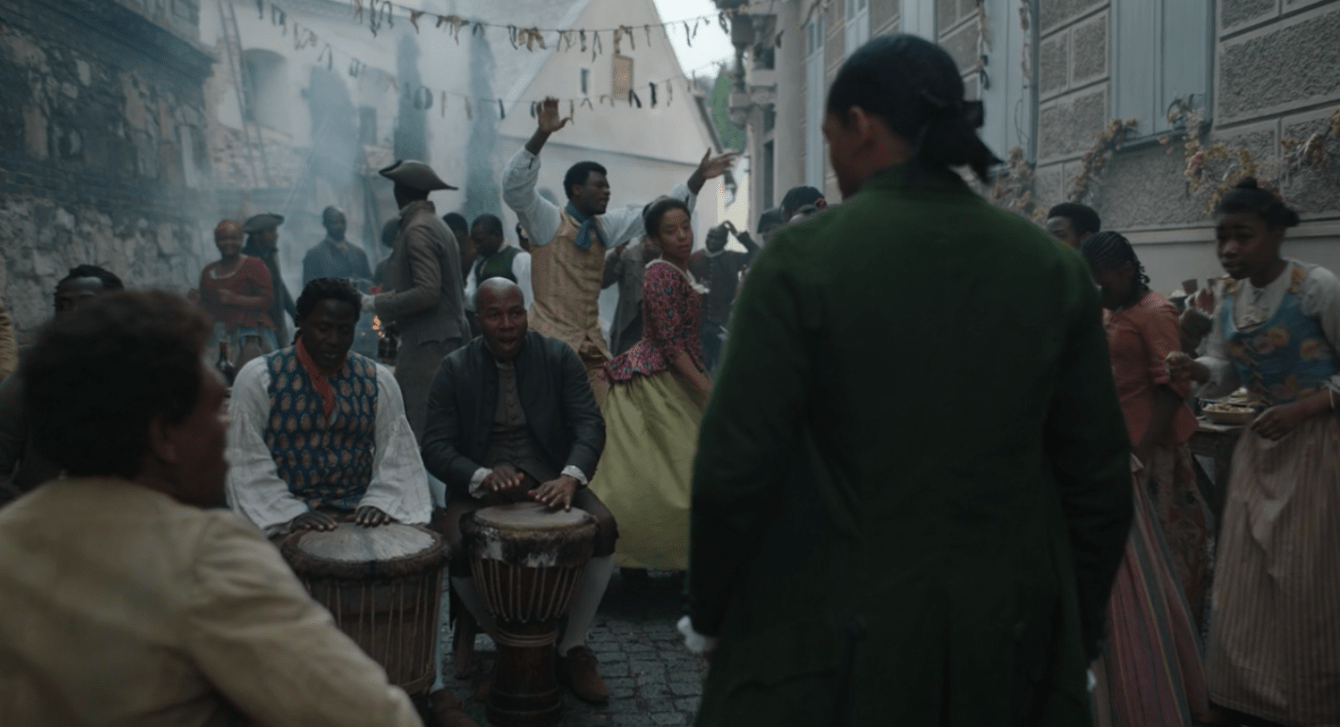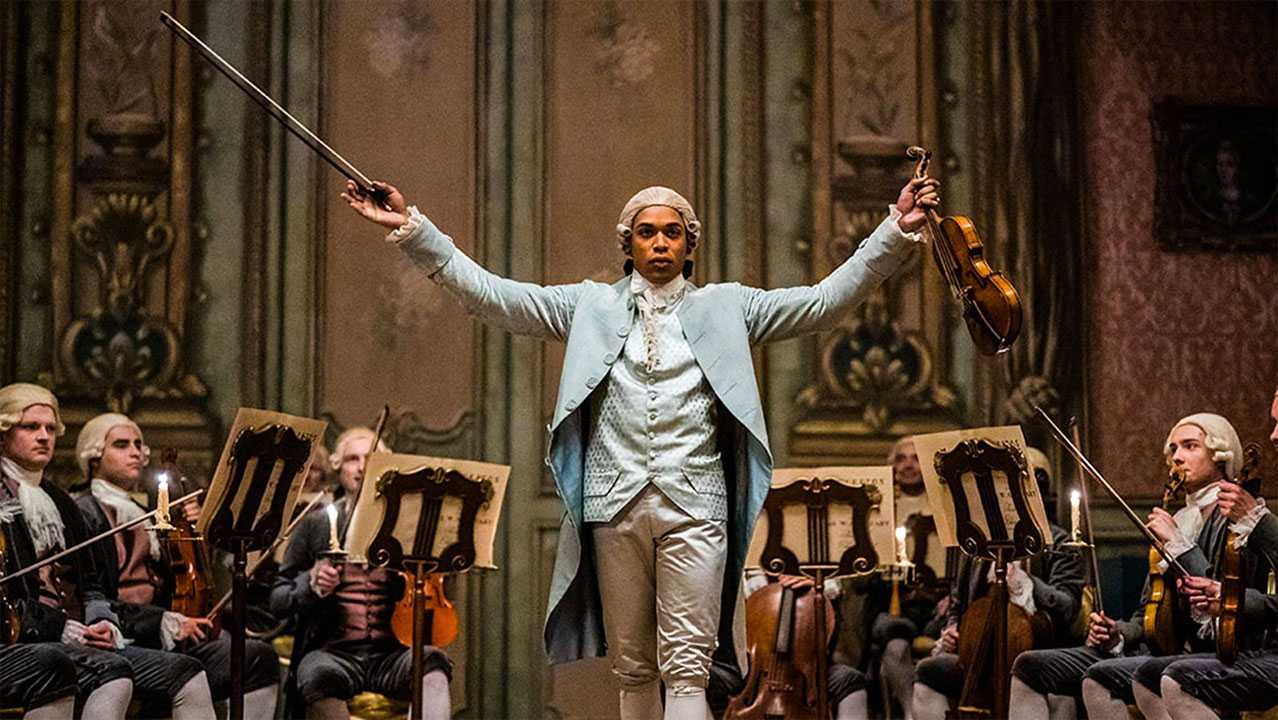Real and dramatically current. This is how we would describe Chevalier, the new film by Stephen Williams, here is our review
ORIGINAL TITLE: Chevalier. TYPE: dramatic, biographical. NATION: United States, Ireland. REGIA: Stephen Williams. CAST: Kelvin Harrison Jr.,Samara Weaving, Lucy Boynton, Marton Csokas, Alex Fitzalan,Minnie Driver. DURATION:107 minutes. DISTRIBUTOR: Element Pictures. USCITA: 2022.
No one can humiliate an extraordinary Frenchman
Among the myriads of films that land on the different platforms every day, it becomes really difficult to choose which one should have our attention. Sometimes we discover that the chosen film or series wasn’t exactly what was right for us, other times instead, we are pleasantly surprised to discover little gems, which we can’t wait to recommend to relatives and friends. The latter is the case with Chevalier2022 film, directed by Stephen Williams and recently landed on Disney Plus.
It is a Historical filmcentered on the figure of Joseph Boulogne Knight of Saint Georgean extraordinary violinist, among the first black composers to establish themselves at the French court, in the second half of the eighteenth century. However, the life of a mulatto musician is certainly not easy, forced to constantly demonstrate his worth. In the film, Joseph is played by Kelvin Harrison Jr.at his side historical figures such as Marie Antoinette, played by Lucy Boynton. Also in the cast Samara Weaving, Marton Csokas, Alex Fitzalan e Minnie Driver.

Talent vs origins | Chevalier review
There can be many ways to develop a film, but Stephen Williams succeeds in a very important aim: transform a historical and biographical film into a film that talks about current issues. In fact, it does not limit itself to reporting biographical events in an almost two-hour film; Joseph’s life becomes rather an “excuse” to denounce topics that are still highly debated today, such as the racism. The story of this character, who really existed, certainly still has a lot to say today.
Joseph, illegitimate son of an African slave and a French landownerthere is a great talent for music; already as a child he is able to play the violin divinely and this leads him, under the recommendation of his father, to receive an education in France. It is thanks to his talents that he manages to make his way up to the court. Given his skills it would seem an easy task, but it is not. Our protagonist is mulatto and this is enough for his existence in this country to be a continuous battle. Aware of this, he knows that to get the recognition he deserves he must excel, surpassing others in skill, so much so that he makes challenges a natural part of his being.

Music as a defense weapon | Chevalier review
From the first moments of the film it is clear that this physical characteristic will always force him to fight to establish himself. Called “the dark stranger” in a country where he has always lived, he has only one weapon to show others what he’s worth: the music. It is no coincidence that it is used as the only tool that Joseph will be able to use to win over the public and defeat the competition. In fact, his whole life revolves around this talent of his; if this were to collapse, everything else would also collapse. One misstep and all he has conquered could dissolve forever.
In fact, the music becomes the second protagonist of the film; present throughout its duration, it takes on different connotations, never banal or casual. While on the one hand it is used as a weapon, in contrasting Joseph’s skill to that of other musicians, in other cases it becomes useful for better understanding two different cultures, the French and the African, both coexisting in the protagonist, but also in Paris itself.

A sad reality hidden behind the glitz | Chevalier review
What better setting for a story like this than 18th century France? We are in Paris, in the prelude to the French Revolution, a historical period that marked the destiny of Europe. A time when the wealthy ruled with their riches and their glitz. Chevalier divinely stages this historical context, with environments full of details, which transport the spectator between the adorned rooms of the court palaces. Richly decorated dresses, flamboyant hairstyles and pompous furnishings are but a farce. Behind all this opulence hides a rotten society, made up of gossip, betrayal, rumors, all hidden behind a mask of fake perfection. Photography helps a lot to give a sense of dustiness to scenes where the aristocracy is present. In fact, the colors seem toned down, so much so as to give the public a feeling of antiquity, as if to signify an outdated lifestyle and thought.
Joseph lives among these people, but he is not like them. He is perfectly aware of it, also because his life is dotted with episodes in which someone reminds him of it. He is seen by some as a threat to the purity of France, not open to what Joseph has to offer other than his music, deeming him different, an outsider. However, the violinist does not even feel part of the black community, because he is educated like a Westerner, so much so that his own black relatives consider him French. Joseph therefore finds himself in the situation of not really belonging to either reality.

Freedom, equality and fraternity | Chevalier review
The world in which Joseph grew up is a world that does not accept him for who he is, but only for what he can take from himi.e. music. Everything else is to be hidden or even thrown away, because it is worthless in the eyes of others. But fortunately, 18th century French society is not only this, but also a symbol of a different future, based on the famous motto Liberté, Égalité, Fraternité. Precisely these words will be the basis for a fight for a more just world, where even minorities can find space and dignity.
The parallelism with today’s society seems inevitable, precisely because racism is still a very hot topic today and stories like Joseph’s are widespread. The film, in its intent to show the difficulties of a man in a hostile world, also lays the foundations for a deeper reflection, aimed precisely at the people who experience this discomfort on their own skin every day, whether it’s racism or something else. It is evident how the film suggests not to abandon or deny our origins or our nature, to seek the approval of others.
Conclusions
We have reached the end and it is time to draw conclusions regarding this film which turns out to be, without a doubt, a good film, which we advise you to recover. Characters, stories, costumes and scenery will keep you company with one smooth and light show, which however also has a lot to teach. Anyone could see themselves, in one way or another, in Joseph and his constant warfare, seeking acceptance, in the need to prove who he is and what he’s worth.
Plus points
- Still very topical issues
- Sliding biopic
- Excellent set design and photography
- Masterful use of soundtrack
Points against
- Failure to deepen some characters, who could have offered a better contribution to the plot
Are you looking for new movies and new TV series to watch? Discover the new Disney+ subscription, the streaming home of Disney, Marvel, Pixar, Star Wars, National Geographic and now Star too. Subscribe now to only 8.99 euros per month on this page.
















Leave a Reply
View Comments